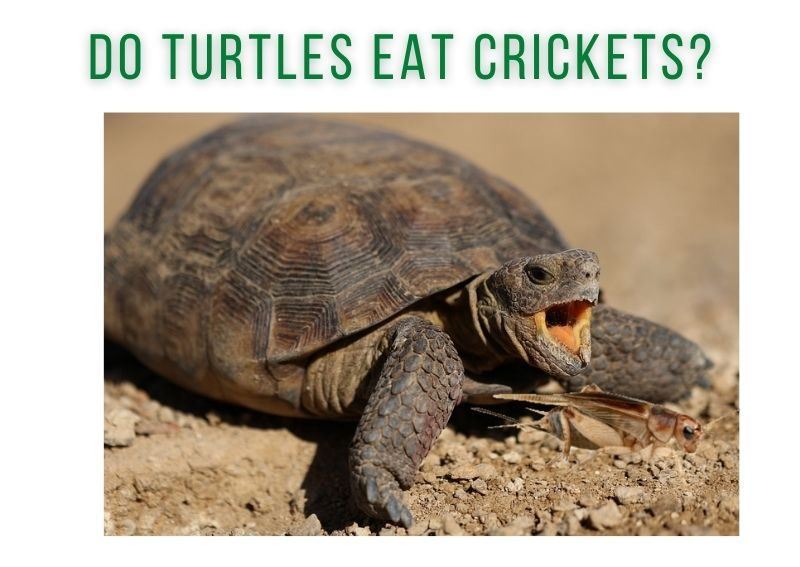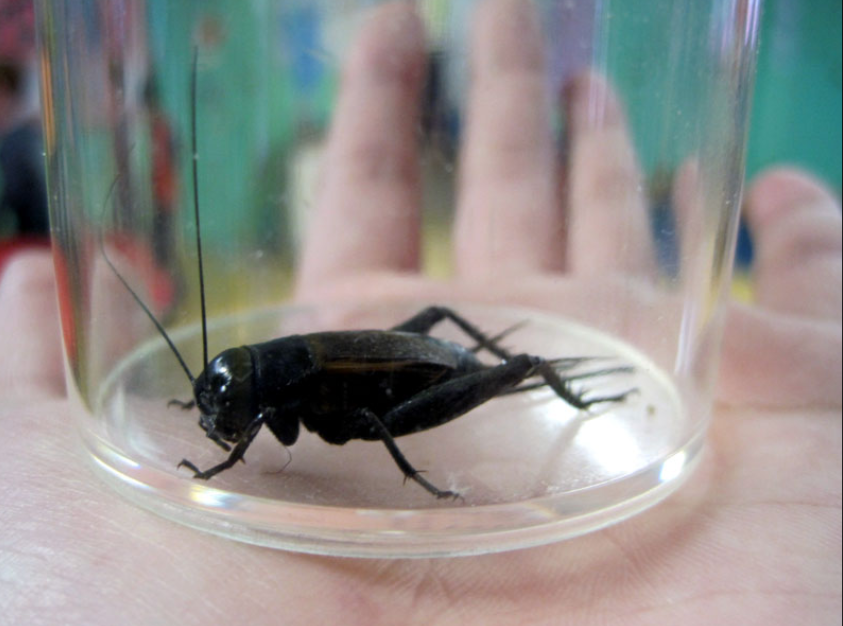Turtles are fascinating creatures that require a balanced and nutritious diet to thrive. As a turtle owner, you may be wondering if it is safe to feed your pet turtles crickets. In this article, we will explore the topic of whether turtles can eat crickets and provide you with all the information you need to make an informed decision about your turtle’s diet.

Can Turtles Eat Crickets?
Yes, turtles can eat crickets. Crickets are a great source of protein for turtles and can be a healthy addition to their diet. However, it is important to ensure that the crickets you feed your turtle are safe and free from any harmful substances.
The Nutritional Benefits of Crickets for Turtles
Crickets are rich in protein, which is essential for the growth and development of turtles. Protein helps in building and repairing tissues, as well as supporting the immune system. Additionally, crickets also contain vitamins and minerals that contribute to the overall health of turtles.
How to Feed Crickets to Your Turtle
When feeding crickets to your turtle, it is crucial to provide them with the right size and quantity. The size of the crickets should be appropriate for your turtle’s mouth to prevent choking hazards. It is recommended to offer crickets that are smaller than the width of your turtle’s shell.
You can either purchase live crickets from a pet store or breed them at home. If you choose to buy them, ensure that they are from a reputable source and are gut-loaded. Gut-loading refers to feeding the crickets with nutritious food before offering them to your turtle, ensuring that they are packed with essential nutrients.
Precautions and Considerations
While crickets can be a beneficial addition to your turtle’s diet, there are a few precautions and considerations to keep in mind:
-
Variety is key: Crickets should not be the sole source of food for your turtle. It is important to provide a varied diet that includes other protein sources, vegetables, and fruits.
-
Size matters: As mentioned earlier, it is crucial to offer crickets that are an appropriate size for your turtle. Avoid feeding them crickets that are too large, as it can lead to choking or digestive issues.
-
Avoid wild-caught crickets: Wild-caught crickets may carry parasites or pesticides, which can be harmful to your turtle. Stick to commercially bred crickets or breed them at home.
-
Observe your turtle: Monitor your turtle’s behavior and health after introducing crickets to their diet. If you notice any adverse reactions or digestive issues, consult a veterinarian.
Conclusion
In conclusion, turtles can eat crickets as part of a balanced diet. Crickets provide turtles with a good source of protein and essential nutrients. However, it is important to ensure that the crickets are safe, appropriately sized, and not the sole source of food for your turtle. By offering a varied diet and monitoring your turtle’s health, you can provide them with a nutritious and enjoyable meal.
FAQs
1. Can turtles eat crickets every day?
While turtles can eat crickets, it is not recommended to feed them crickets every day. A varied diet that includes other protein sources, vegetables, and fruits is essential for their overall health.
2. How many crickets should I feed my turtle?
The number of crickets to feed your turtle depends on its size and age. As a general guideline, offer a few crickets at a time and monitor your turtle’s appetite. Adjust the quantity accordingly to prevent overfeeding.
3. Can I feed my turtle frozen crickets?
It is best to offer live or freshly killed crickets to your turtle. Frozen crickets may lack the same nutritional value and may not be as appealing to your turtle.
4. Are there any alternatives to crickets for turtle protein?
Yes, there are several alternatives to crickets for turtle protein. Some options include mealworms, earthworms, shrimp, and fish. It is important to offer a varied diet to ensure your turtle receives all the necessary nutrients.
5. Can turtles eat cricket exoskeletons?
Turtles may consume the exoskeletons of crickets, but they do not provide significant nutritional value. It is best to focus on feeding your turtle the actual cricket body for optimal nutrition.

